Charlie Holland has been living in Sun City, South Carolina, USA, for five years with his wife and is currently enjoying the retired and sheltering-in-place (for COVID19) lifestyle. He moved from St. Louis where he lived for 15 years and worked in the health insurance industry. I met Charlie when he started attending the Palmetto Plant Eaters Club meetings and events. Little did I know then that this man is on a mission! I feel grateful to have gotten inside his mind for an enlightening conversational hour.
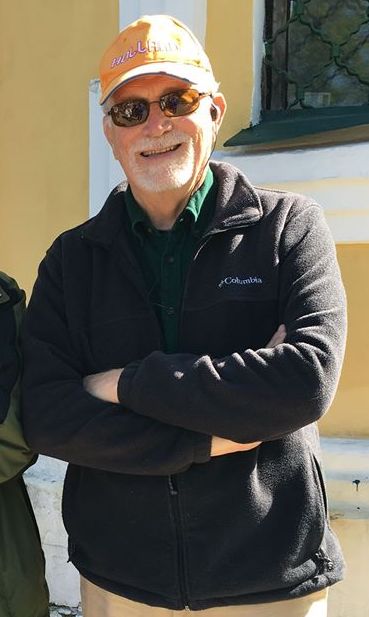
Carla: How did the plant-based lifestyle find you?
Charlie: When we moved to Sun City, I bought a smoker so that I could start smoking meat. That was going to be my retirement hobby. Just before we moved, I had been on a diet and lost about 20 pounds. I have had a history of losing and gaining for years. We soon met our neighbors and one mentioned the local ‘Eat Smart, Live Longer (ESLL) Club’ inside our Sun City neighborhood. We went to a meeting and I got all excited about it because I thought it’d be a great way for me to keep off my recent weight loss. As I got wrapped up in the Club, I started reading and researching a lot. It changed my life for the better.
Carla: Was your wife on board too?
Charlie: Kathy said that if I wanted to make a lifestyle change and adopt a plant-based diet that she’d happy support me by going along if I cooked all the food. At that point my cooking skills included smoking meat and frying my eggs in sausage grease. So I took the Forks Over Knives Rouxbe online cooking course where they teach you how to maneuver around the kitchen as an exclusive plant-based eater.
The ESLL Club offered a 21-day jumpstart class that helps people transition from a conventional diet to a whole food, plant-based (WFPB) diet. I did that, I took up my wife’s offer, and I now do all the cooking at home.
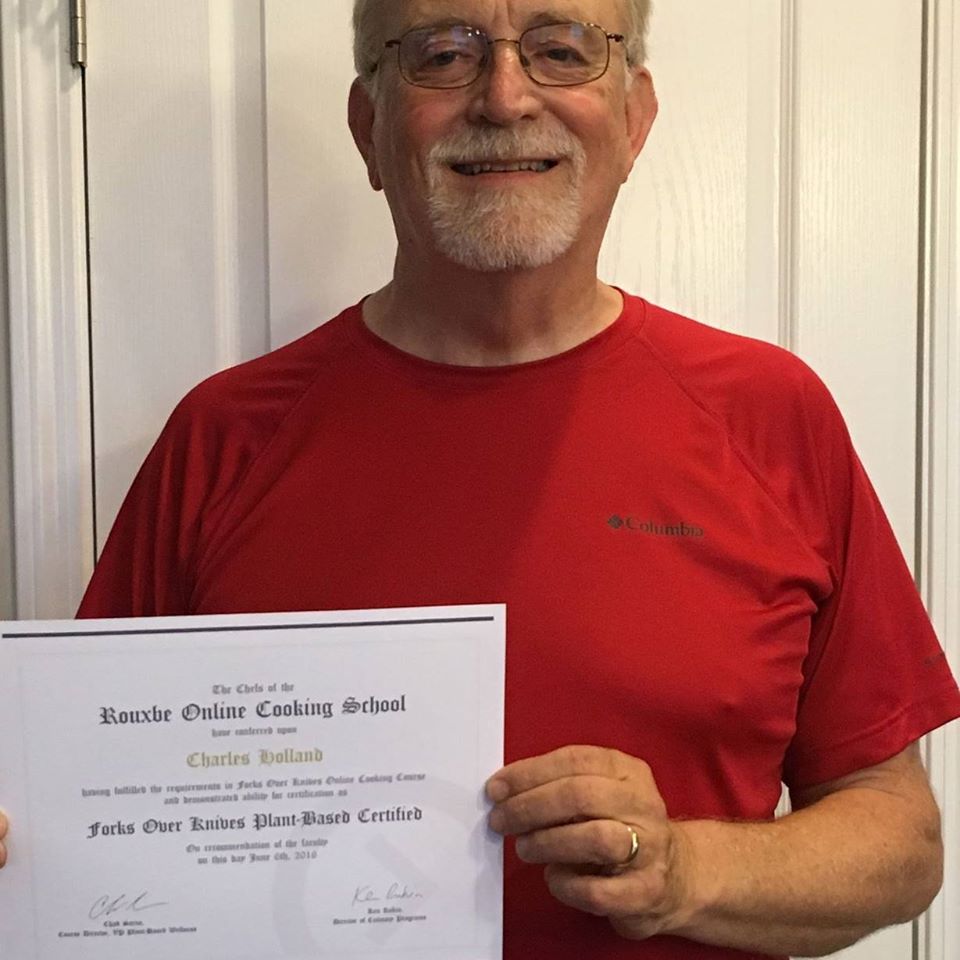
Carla: Do you have a favorite plant-based doctor that you enjoy following?
Charlie: Yes, Dr. Michael Greger soon became my go-to source for dietary advice and I’ve read his books. His most recent book How Not to Diet has been critical to my efforts and success so far.
Carla: What changes in your health have you observed since you started changing your food choices?
Charlie: I joined ESLL to not gain any weight back and lost another 20 pounds. Nonetheless I’m still considered clinically obese at 76 years old. I’m actively trying to lose weight. I had liver cancer last year and because I had gotten so healthy, I had more options for treatment including transplant. I chose a less invasive procedure and so far I’m doing well. I have had high blood pressure and was taking five different drugs. I’m down to two pills for that. Also I had cornea transplants and have been on medication for that. It used to be that I would blow through my pharmaceutical insurance by the first quarter of the year but because of my improved health and fewer drugs needed, the insurance now lasts me all year.
Carla: How much weight would you need to lose to no longer be clinically obese?
Charlie: I need to lose 10 pounds to be considered overweight instead of obese. I’d need to lose 26 pounds to get under 178 pounds which would be the top part of normal for my height. I’m at 203 pounds so far with the help of Dr. Greger’s guidance.
Carla: What tweaks, as recommended by Dr. Greger, to your WFPB diet are you using to lose weight?
Charlie: Dr. Greger focuses on low-calorie green vegetables which come in at about 100 calories per pound. Fruits come in at about 250 calories per pound. Starchy vegetables, whole grains, and beans are about 3-500 calories per pound. Calorie density is the name of the game and I try to stick to those three categories. I eat a lot of giant salads, oatmeal and fruit, and sautéed (in water or veggie broth) greens. I do not eat meat, dairy, eggs, highly processed foods, or high-fat plant foods like oil, avocados, or nuts. My focus is 1. low fat, 2. plants, and 3. whole (unprocessed) foods. Fat carries more calories than carbohydrates or proteins.
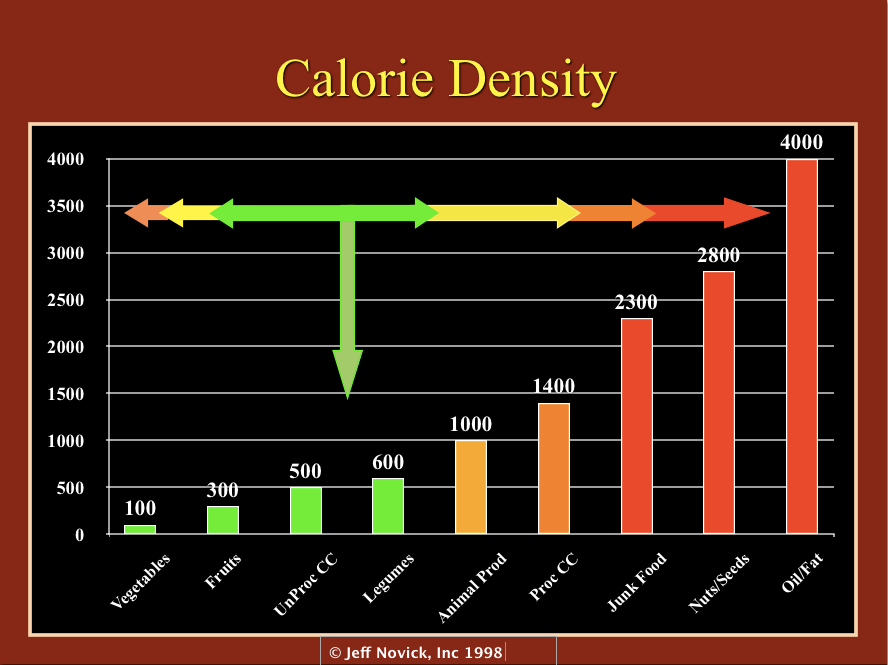
Dr. Greger recommends certain spices and teas to help supplement the low calorie plant foods for optimal weight loss. My goal is to lose visceral (organ) fat and heal my liver as much as possible. My blood pressure keeps going down as I lose weight so I’m hoping I’ll be able to fully eliminate those medications.
Carla: Do you consider yourself strictly a health-focused plant-based eater or do you incorporate some of the vegan ethical principles in your food decisions also?
Charlie: I support Dr. Neal Barnard and the Physicians Committee for Responsible Medicine‘s (PCRM) effort in getting animals out of laboratory testing. I still eat a steak once a year on Christmas Day so I can not claim to be an ethical vegan. I do like to see the conventional milk industry struggling with the emergence and market takeover of plant-based milks. I keep up with that sort of information but the bulk of my food decisions are based on health science more than an ethical or moral position.
Carla: Do you eat any of the vegan highly processed taste-alike foods?
Charlie: We have but do not make a habit of it. We’ll eat minimally processed black bean burgers and Gardein makes a vegan meatball that we like with our spaghetti squash. I have a recipe for WFPB vegan meatballs but haven’t gotten around to making them yet. I’d say that upwards of 90% of our food is from whole plants.
I recently read Will Bulsiewicz, MD’s book titled Fiber Fueled and learned the importance of eating as much a wide variety of plants as possible because each plant has a different kind of important fiber for gut and overall health. So now we’re adding foods that we’ve not had so much before. For example we’ve expanded the kinds of greens that we’re eating.
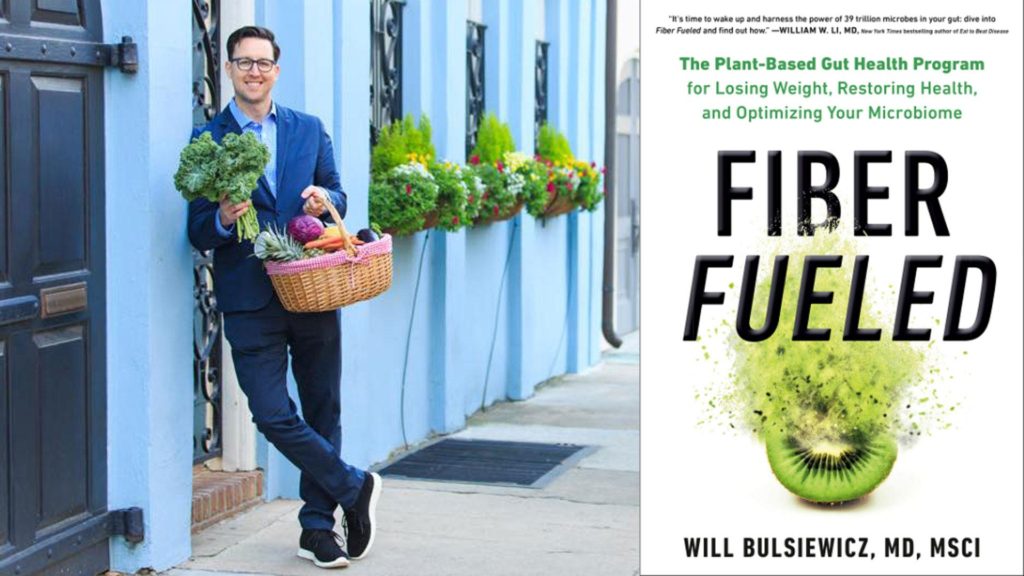
Carla: At the beginning when you started attending ESLL Club meetings and learning about the WFPB way of eating, was it difficult for you? Did you have to exercise much willpower or self-discipline?
Charlie: The hardest part was adjusting to new social logistics since most of what people do around here when they get together is eat. At first when I went out to a restaurant I’d just order what I used to order but I was eating WFPB at home. Then I learned how to ask a restaurant for what food I wanted and how I wanted it prepared so that I could eat out with my friends and still stay committed to my health goals.
Things started to change for the better then the ESSL Club established a Facebook group where we could share tips and which restaurants were accommodating to the WFPB lifestyle.
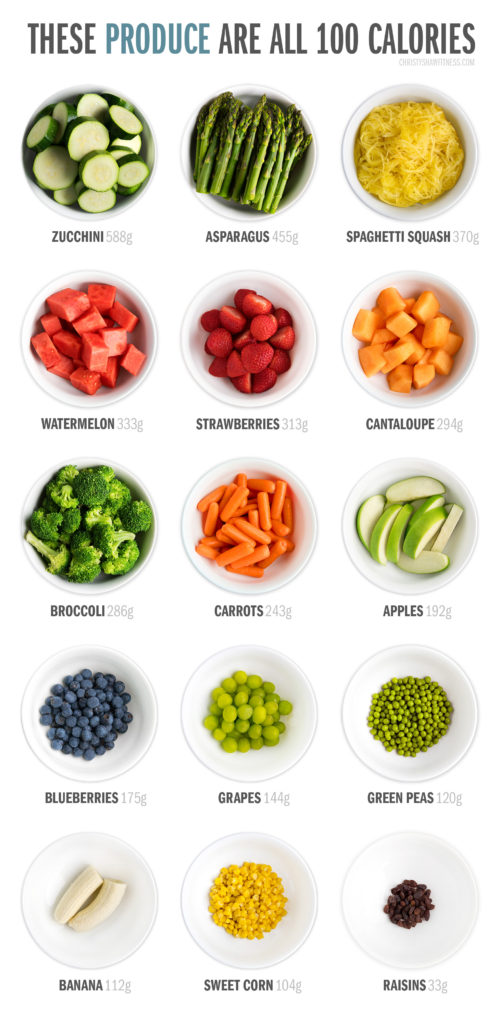
Carla: Have you had any influence on your family or friends with the way you’re eating now?
Charlie: My children want nothing to do with what I’m doing. My son who is now 51 is starting to get a little sense that maybe what his father is doing is not completely silly. My brother is very unhealthy unfortunately and suffering from congestive heart failure. Sadly he gags at the thought of eating lettuce. I know I could feed him WFPB for a month and restore his health but he wants nothing to do with it.
My local friends know that I’m “the strange one” and bring all my own food to parties. They can’t imagine not enjoying steaks or pork chops on a daily basis. I’ve never really taken on the task of trying to convert anyone to a healthier way of eating but if someone asks about why I do what I do, I’m more than happy to talk to them. It was clear from the get-go that trying to convince anyone of anything food related was futile so I’ve just quietly gone about my business doing what I need to do for my health and figure out how to stay involved socially. So many of my friends think that I can no longer go out to eat with them which isn’t true. I’m glad to know now how to order what I want to eat in restaurants so that I can continue to have fun with my friends.
Carla: What do you think the resistance or aversion to this lifestyle is all about?
Charlie: People have been eating the way they eat their whole life with their families and during the holidays. I have found that people can not fathom eating something different for Thanksgiving or Christmas. Some people can not imagine their life without regular steaks or ice creams. I’m viewed as the oddball.
Carla: But they’ve seen your physique and health improve, yes?
Charlie: Oh yes! They’ve all seen it. They say “I could never do what you’re doing.” I see people torturing themselves on various branded restrictive weight loss diet plans that require measuring and weighing food or consuming branded food products while seeing the pounds melt off of me just by eating a copious amount of real food. They just can’t wrap their heads around it.
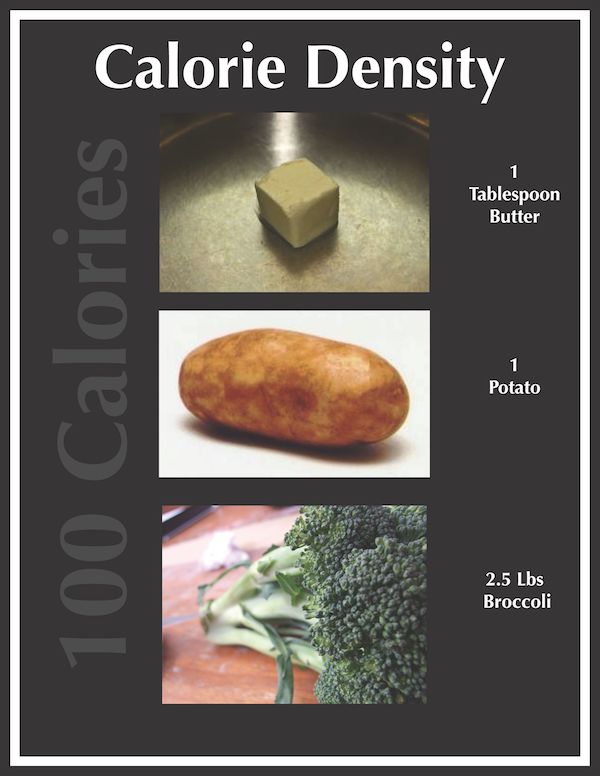
Carla: It is endlessly fascinating and frustrating to me that so many people suffer and struggle with their weight and health and, even if they see someone right in front of them change their lifestyle choices and habits that lead to successful weight loss and health restoration, that they themselves will not give it a try. It’s so strange to me that a person can have a living example of success right in front of their eyes doing what they themselves say they want to achieve and they still won’t give it a try. It baffles me! It’s like one (personal goal) plus one (living example of same personal goal achieved by someone else) equals nothing in so many minds!
Charlie: I have sensed, based on my experience thus far, that it would be easier to try to convince a person to become a Buddhist than to become a plant-based eater. It’s perceived as not only controversial but also threatening. Even most devout environmentalists won’t change their food choices even when factory animal farms are one of the leading causes of pollution of water, land, and air!
Carla: How about your doctors, what do they think about your approach and results?
Charlie: They are so pleased, especially my liver doctors at Duke University Hospital in Raleigh, North Carolina. They fully support my WFPB approach because they see how much it has benefited my health. My local doctor is convinced that I should continue what I’m doing for my health but he’s not convinced that he or anyone else needs to take up WFPB eating. It’s amazing! (laughter) My wife and I pretty much eat at home and out with friends or family and do our own thing without talking about it to others.
Carla: Do you ever find yourself showing up to eat with family or friends, quietly going about your business, and people spontaneously start verbalizing justification for their food choices around you?
Charlie: Yes, often. Usually it’s proclaimed that a person could never do what I’m doing and the conversation mushrooms out from there. It’s almost as if they’re waiting for me to say something that they can argue with. To that I just say that this approach works for me, I’ve eliminated almost all my medications, I’m losing weight and keeping it off, and I’m feeling better than when I was 40 years old. They can not argue with me on those points.

Carla: And you’re saving money on insurance and not having to buy so much medicine!
Charlie: Absolutely! I guess it all just sounds too good to be true. But it is true. When I started down this road I was so sure that everyone I told about it would gobble up the information but instead I encountered stone walls. It’s frustrating to me, it makes them mad, so I stay quiet. It’s unfortunate because this lifestyle could relieve so much suffering if people could engage their imagination and open their minds to what’s truly possible for them too. Food is the easy part. People are the hard part! (laughter)
Carla: That’s where I have to accept that people don’t really want to change. There is something about their current lifestyle, albeit a self-destructive one, that is serving them. They don’t want to let go of the steaks, pork chops, and ice cream. I have to honor that and at the same time I do not understand choosing to suffer needlessly. I have to bite my tongue and walk away A LOT! (laughter)
Charlie: Even when most people are sick, they don’t want a solution. Dr. Michael Greger’s very own grandmother was sent home in a wheelchair to die from end-stage heart disease at age 65. Then she heard of Dr. Nathan Pritikin, followed his eating guidelines, and about a month later was walking around and lived another 20 years or so. These stories are possible for just about anyone if they will just take the time to learn how to eat in a way that supports optimal health. It’s never too late.

Carla: Are you employing any self-discipline these days as far as for staying on track with your food or with engaging others?
Charlie: They way I eat is habit now. I no longer have to try hard. I’m solidly on track and keeping the course. The results so far are too wonderful to mess it up now. The self-discipline nowadays comes from holding back when I want to share with someone how their health could be improved by making different food choices. More often than not, I just stay quiet. The most success now that I might have is just convincing a friend to attend an ESLL Club meeting. Let the Club do the heavy lifting and convincing! (laughter) If they are interested enough in going to a meeting once, there is hope for them. When they walk into a meeting room full of 200 people, they sense that maybe ol’ Charlie could be on to something after all.
Carla: That’s such a great resource that you have in your neighborhood. It’s really quite phenomenal what has been created there. Who would have guessed that a plant-based eating club in a small-town in South Carolina would attract over 600 paying members? So impressive!
Charlie: It really is. The Club has inspired and helped so many people. Our greatest challenge right now – besides not being able to meet in-person due to COVID19 – is convincing people to go all in. We have many people dabbling around the edges and making a few changes, but not fully committing. There is a lot of pushback to the 100% commitment message but as the WFPB doctors and practitioners know, the closer one gets to being fully WFPB, the greater the results. You can’t be WFPB during the week, eat your old way over the weekend, and expect the desired results.
I was drawn to a full commitment because I was tired of gaining the weight back. I was willing to do anything to keep from gaining back the last 20 pounds that I had lost.
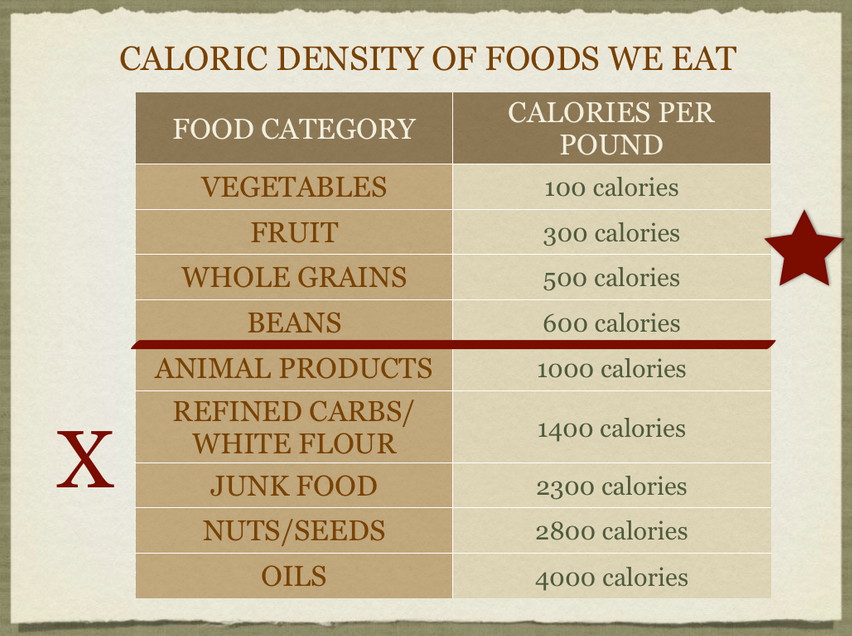
Carla: How many times have you been through the cycle of losing weight and gaining it back?
Charlie: I was raised by a mother who was always on a diet so it seemed to me like a normal way to live to lose weight, gain weight, and then lose and gain it again. Everytime she lost weight, I lost weight. I was a skinny beanpole then, but at age 25 I started gaining about 10 pounds a year. I did just about every name brand diet plan you’ve ever heard of and none of them helped me keep the weight off. That’s all I wanted. I worked so hard to lose the last 20 pounds and I was determined to not gain them back. That’s when I found ESLL, kept the weight off, and lost even more.
Carla: Have you had to re-frame what “diet” means to you?
Charlie: Yes, I don’t consider myself being on any sort of diet now. I’m just eating whole plant foods at the largest possible low-calorie volume (per Dr. Greger’s book How Not To Diet) until I get my weight down and then I’ll go back to my normal WFPB cooking and eating (per Dr. Greger’s book How Not To Die) for maintenance. This is not a diet that I’ll go off of someday. This is a lifestyle that I will tweak depending on my weight and health status and goals. It’s my lifestyle. It’s what I do. It’s who I am now.
This weekend we’re going to make a vegan lasagna and a vegan shepherd’s pie for my wife so that she can have meals on hand. I won’t eat them with her until my weight gets down to where I want it. Then when I go into maintenance mode, I’ll enjoy these foods with her again.

Carla: Is it hard for you to make those foods for and with your wife and not eat them yourself?
Charlie: No, not at all. I’m so clear and committed to my mission. I know exactly what I’m doing and I’m not going to be hungry doing it. Those foods will wait for me until I am ready. If I get hungry and need a little something extra to eat, I keep watermelon cut up in the refrigerator to snack on. Fresh cherries are in season now so I’m enjoying those too.
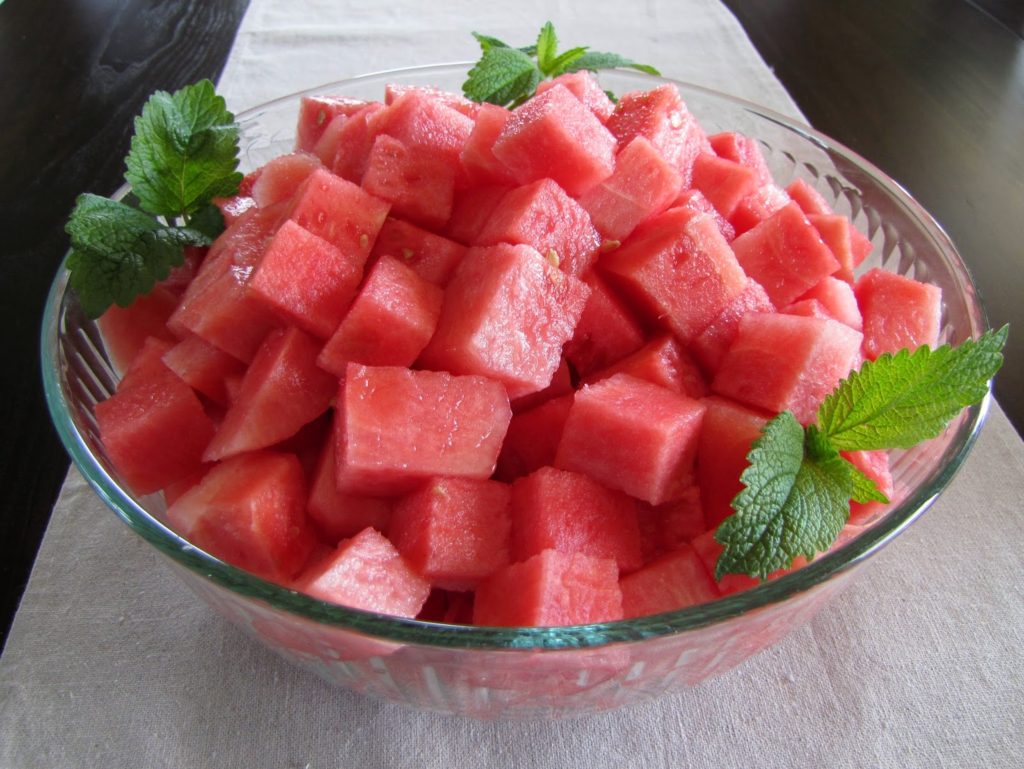
Carla: Do you have a sense of how long your weight loss project will take you?
Charlie: I lose 1.5 to 2 pounds per week. I bike every other day and walk on the alternate days. I need to get to 178 pounds and I’m 203 now so it’ll take me about 3 months.
Carla: If someone were truly interested in losing weight, restoring their health, saving their life, and extending their life, what would be your best piece of advice that you would give them?
Charlie: In my experience, I would recommend finding a support group. There is power in numbers. There is not one way to do this lifestyle so a variety of people sharing recipes, tips, resources, and insights is so helpful. The community structure I have found to be critical to my success. I didn’t have to figure this all out myself thanks to all the people who went before me. And I’m able to help those who are coming into the group behind me.
Carla: That’s great advice. I’ve been raptured by your story Charlie. It’s fascinating to listen to and I commend you for your commitment. I don’t think there’s anything more important or empowering than taking full responsibility for your health. Best wishes and enjoy the process!
Readers, to access all the posts in this interview series, please click HERE.

{ 2 comments… read them below or add one }
Really loved this interview with Charlie! It made me chuckle at times….he’s right on but I’m biased! ☺️
So glad you enjoyed reading about our friend Charlie. I appreciate you taking the time to comment Judy.